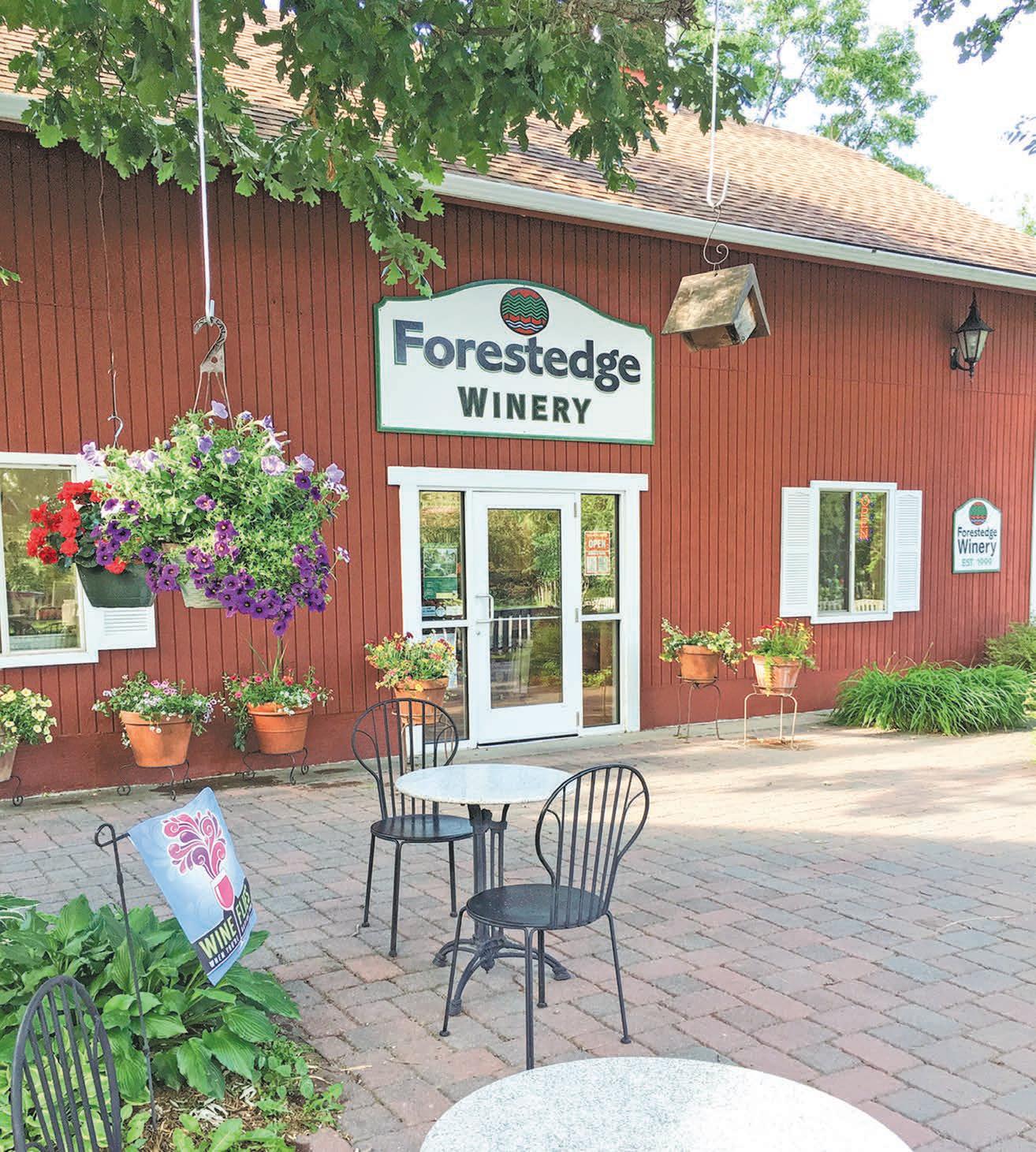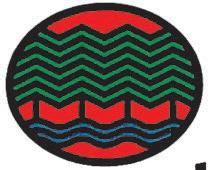CABIN READER 2024

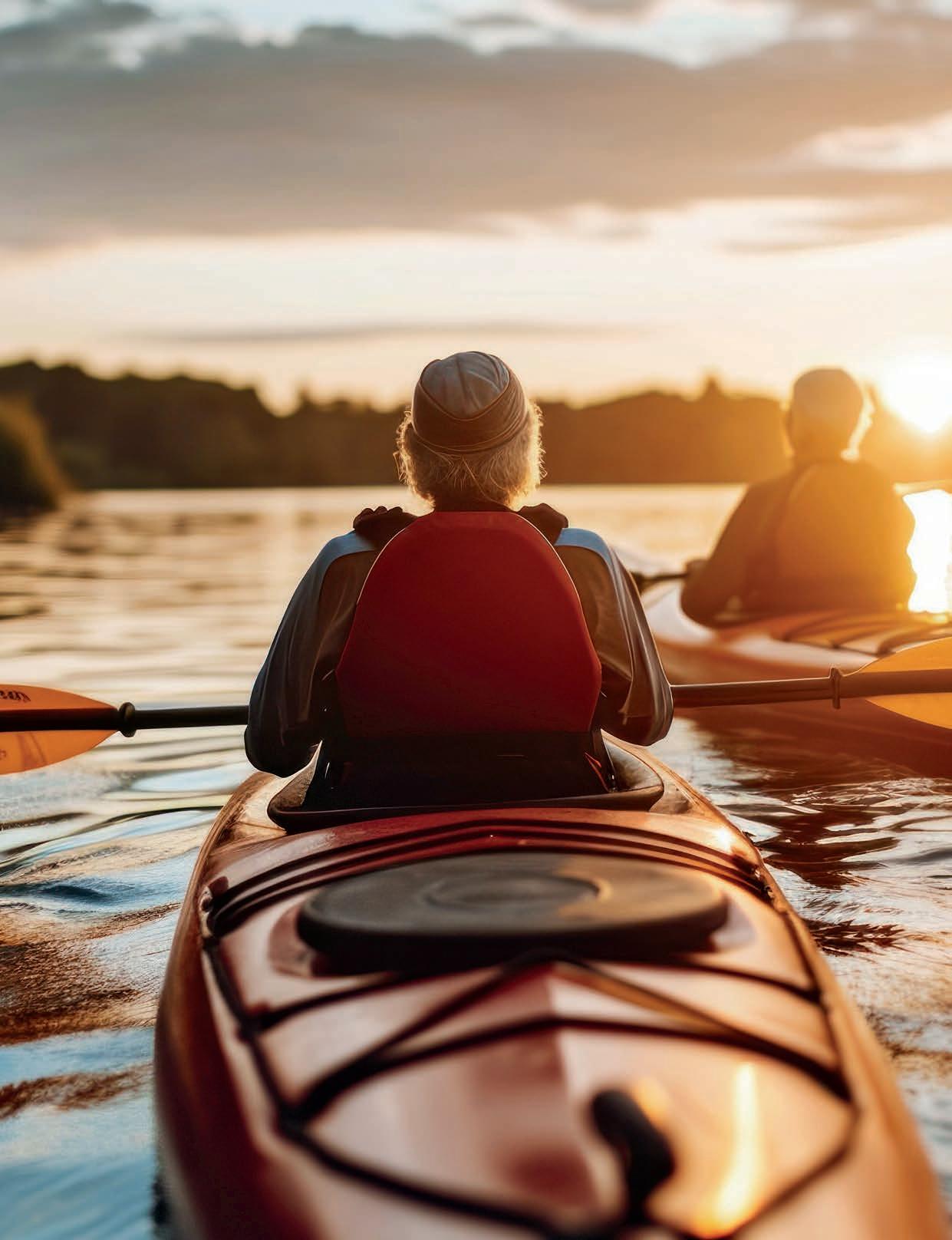
Published by




Published by


Visitors to the Heartland Lakes area soon learn it’s the land of 10,000 things to do. To find out the latest local news and upcoming events, turn to the Park Rapids Enterprise, an award-winning newspaper published every Wednesday and Saturday. We offer year-round subscriptions for Minnesotans and outof-state visitors. For more information, call 218-732-3364. Our office is located at 1011 First St. E., Suite 6, Park Rapids. You can find us online at www. parkrapidsenterprise.com, Instagram or our Facebook page.
This publication is the sole property of the Park Rapids Enterprise No portion of it may be reproduced without the express, written consent of the Park Rapids Enterprise
A century ago, stories are told of families arriving at the Park Rapids train station for a summer vacation, a driver with horse and buggy greeting the haggard guests.
They had ridden hours, arriving from Minneapolis-St. Paul and out of state.
After a stop at the area mercantile establishment for some flour, sugar and other basic necessities, it was off to the cabin on the lake.
Fishing. Swimming. Lounging on the beach. Card games. Catching fireflies. Watching squirrels skirmish. Picnics. Reading a good book.
Times may have changed. But the overall lure of vacation on the lake remains.
According to the Minnesota Department of Natural Resources, “Although water may seem abundant in Minnesota, the land of 10,000 lakes (there are actually 11,842 lakes of 10 acres or larger), water is a limited resource.
Throughout the world, clean, fresh water is increasingly scarce.”
The fresh water in Minnesota’s aquifers, lakes and rivers is “a legacy of retreating glaciers that shaped the landscape more than 10,000 years ago.”
Six percent of Minnesota is covered with water – more than any other state. Minnesota has more miles of shoreline than Hawaii, California and Florida combined.
In the heart of northern Minnesota lies one of the world’s greatest rivers, the Mississippi River. The Ojibwe word for the river is Messipi, meaning “big river.”
A raindrop falling in Lake Itasca arrives downstream at the Gulf of Mexico about 90 days later.
As you and your family connect with the north woods’ natural beauty, please remember to leave no trace. Let’s keep our beautiful lakes pristine, together.
Minnesota is the only state to have an orchid as its state flower: the showy lady’s slipper.
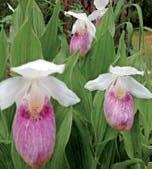
It was adopted as the state flower in 1902. Found living in open fens, bogs, swamps, and damp woods where there is plenty of sun, lady’s slippers grow slowly, taking up to 16 years to produce their first flowers. Lady’s slippers bloom in late June or early July. Under the right conditions, lady’s slippers can live for more than 50 years. A healthy showy lady’s slipper can produce a half million seeds in a single year.
The frilly, pink and white lady’s slipper can grow to a height of 4 feet – the tallest of the state’s nearly 50 native species of orchids.
Its scientific name, Cypripedium, means shoe of Venus. Since 1925, it’s been illegal to pick this rare flower or uproot the plants. It’s state law.







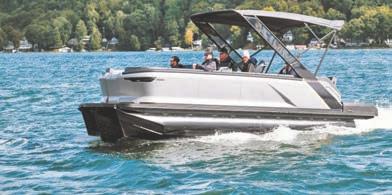



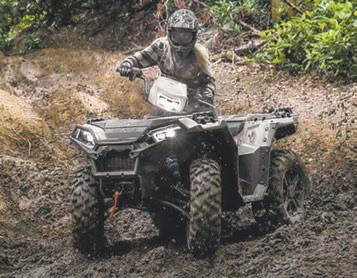





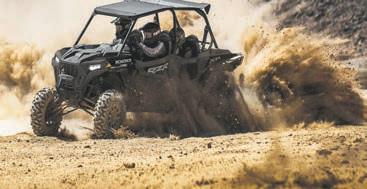

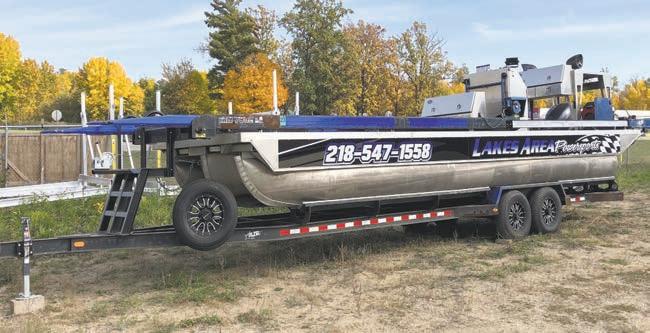


The Minnesota Department of Natural Resources shares this information about some of Minnesota’s most common, furry creatures.
The gray squirrel is one of Minnesota’s most common wildlife species.
Because of its thick furry tail, it is sometimes called bushytail.
The eastern gray squirrel and eastern fox squirrel are among the most sought-after small game animals in Minnesota. A squirrel pressed in hiding against a tree is a challenging target. Each year, Minnesota hunters harvest about 150,000 gray squirrels.
Moreover, its speed on the ground and through the treetops has vexed many a squirrel hunter.
Gray squirrels may have white or brownish bellies and, in winter, white ear tufts. Black and albino squirrels are variations of the gray squirrel.
They only weigh 1.5 pounds.
Squirrels make a variety of sounds including a harsh chirping or chattering noise when they are angry or scared.
They nest in tree hollows or in a tree-top den, which is a 12- to 19-inch ball-shaped nest made of leaves, twigs and bark.
They eat acorns, hazelnuts, walnuts and seeds of many trees, plus fungi, and elm buds in late winter. Squirrels are accused of digging up lawns as they bury acorns. They may also dig up flower bulbs.
A gray squirrel can hide 25 nuts in a half an hour and can later find roughly 80% of those it buried.

Less than half as large as the gray, this noisy little squirrel is Minnesota’s smallest tree squirrel. It is found in every county of the state, but is most common in evergreen (conifer) forests.
The red squirrel is rusty red above, with a whitish belly, gray sides, and ears that are tufted in winter. It is noted for its bright eyes, perky disposition and chattering, rattling call.
They only weigh 7 to 9 ounces.
Red squirrels nest in hollow trees or build a 12- to 19-inch ball-shaped nest in a tree top using leaves, twigs and bark.
Squirrels eat the seeds of various conifers, acorns, mushrooms, hickory nuts, walnuts and maple seeds. After eating, its not uncommon for red squirrels to leave piles of
shredded cones, husks and hulls more than a foot high. It commonly buries nuts and seeds, either in small piles or singly, for use on winter days.

Chipmunks are woodland creatures which are at home in hollow logs, tree cavities, or underground dens where they store piles of food.
Though small, chipmunks are among our most noticeable small mammals. They are very active and inquisitive. Often they are seen noisily “chipping” like birds as they scamper across a road or climb around picnic tables in search of food scraps.
Chipmunks are unmistakable with their alternating dark and light strips (nine on the least, seven on the eastern), overlaid on rusty and gray body colors.
They are quite small. The least chipmunk is about eight inches long and weighs one or two ounces. The eastern is ten inches long and three to four ounces.
They eat acorns, hazelnuts, seeds, berries, insects and snails.
The eastern (gray) chipmunk lives where oak trees abound, which includes most of Minnesota, except for the southwest. The least chipmunk is found in coniferous forests of northern Minnesota. Both have facial stripes, not found on any other mammals.
Chipmunks love tomato juice. When tomatoes ripen, chipmunks will eat holes in the bottoms to get the juice.
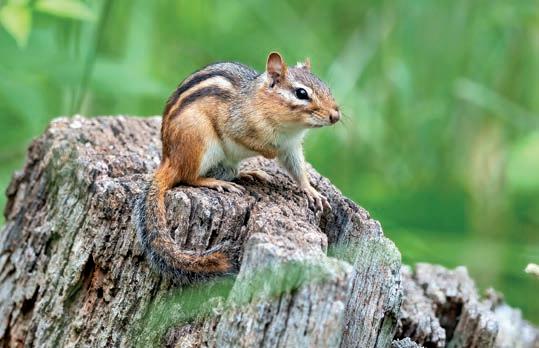



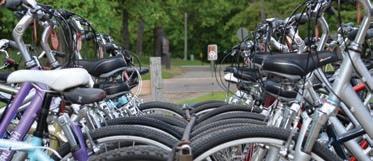



Note: Events are subject to change Always check with the organizer before making plans All events listed are in Park Rapids unless otherwise noted
JUNE
9: Nevis Sites ‘N Bites
13: 2nd Street Stage, Park Rapids
15: Author Fest at American Legion
20: 2nd Street Stage, Park Rapids
22: Dorset Boardwalk Art Fest
27: 2nd Street Stage, Park Rapids
28-30: Akeley 75th annual Paul Bunyan Days
29: Water Ski Show, Halvorson Beach, Nevis
28: Sounds of Spirit Lake, Menahga
JULY
3: 2nd Street Stage, Park Rapids
3-6: Headwaters ProRodeo and Xtreme Bulls Competition, Park Rapids
4: Fourth of July parade, Park Rapids
4: Community Band pre-fireworks concert
4: Rotary Fourth of July fireworks
5-6: Laporte Independence Days
5: Sounds of Spirit Lake, Menahga city beach
11: 2nd Street Stage, Park Rapids
12: Sounds of Spirit Lake, Menahga city beach
12-14: Menahga Midsummer Celebration
13: Water Ski Show, Halvorson Beach, Nevis
13: Bands and BBQ, Nevis
16-21: Hubbard County Fair, Shell Prairie Agricultural Association
18: 2nd Street Stage, Park Rapids
19: Sounds of Spirit Lake, Menahga city beach
19-20: Nevis Muskie Days
25: Crazy Days, Park Rapids
25: 2nd Street Stage, Park Rapids
26: Sounds of Spirit Lake, Menahga city beach
26-28: Lake George Blueberry Festival
26-Aug. 3: Northern Light Opera Company, “Chicago”
AUGUST
1: 2nd Street Stage, Park Rapids
3: Water Ski Show, Halvorson Beach, Nevis
3-4: Antique Tractor & Engine Club Field Days
4: Taste of Dorset
8: Water Wars on Main Avenue
8: 2nd Street Stage, Park Rapids
8: Backyard BBQ Challenge, Park Rapids
10: Northern Knights Run to the Rapids classic car show
10: Northwoods Triathlon, Nevis
15: 2nd Street Stage, Park Rapids
16-18: Lake Itasca Pioneer Farmer Show
17-18: Art Fair at the Winery, Forestedge Winery, Laporte
24: Veterans Tribute Program, Howard Maninga’s home, Ponsford
SEPTEMBER
28-29: Art Leap 2024
28: Headwaters 100
OCTOBER
31: Trick or Treat Park Rapids
NOVEMBER
29: Community Tree Lighting and Yuletide Sampler
No drive around northern Minnesota is complete without a visit to Akeley, the home of one of the biggest selfie stops in the state – everybody wants their picture taken with the legendary big man himself, Paul Bunyan.
Local lore has it that the giant lumberjack was born in Akeley, and the community honors their native son with the world’s largest Paul Bunyan statue. His huge hand outstretched, the 31-foot friendly behemoth has welcomed visitors for more than 25 years.
Located on the Lake Country Scenic Byway, 10 miles west of Walker, Akeley is a hard-to-miss destination for anyone traveling around the area. The little town of about 440 people offers an array of outdoor activities and attractions for visitors, including a city beach and campground, picnicking, fishing, and trails for hikers, snowmobilers, ATVs and more.
The heyday of the Red River Lumber Company was from 1900-1915.
The largest sawmill in the state was located in Akeley, and the town’s population surged between 3,000 and 4,000.
T he Red River Lumber Company sat on the shores of 11th Crow Wing Lake.
While there are more than a dozen locations that claim to be Paul Bunyan’s birthplace, including Bemidji and Brainerd, Akeley has a giant cradle next to the statue.
Akeley historian Frank Lamb said the cradle was built after a group of people got together in 1949. As part of the first Paul Buyan Days celebration, they wanted something to show it was his birthplace.
“The reason Akeley is Paul Bunyan’s birthplace is because the first printed word about him happened when the Red River Lumber Company used Paul Bunyan in advertising with a picture of their version of Paul Bunyan telling how the Red River Lumber Company was his logging company,” he said. “Before, the stories about Paul Bunyan were just by word of mouth. So Akeley was the birthplace of the printed word about him. We claimed him because he had to be born somewhere, even though the stories had been going on for a long time. He must have been a big baby, so we built a big cradle.”
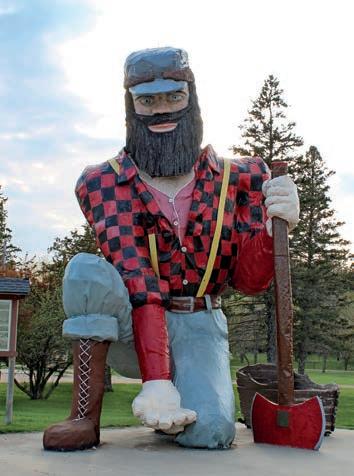
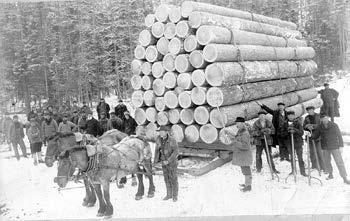
The Paul Bunyan statue was created in the mid-1980s by Akeley area resident Dean Krotzer, with help from his sons and one son-in-law.
Ever since, the area around the statue has been known as Paul’s Patio.
L earn more about Paul Bunyan and Akeley’s logging history at the Paul Bunyan Historical Museum. Founded in 1984, admission is free.
Memorabilia about Paul Bunyan includes some of the early advertising featuring the famous lumberjack and a collection of Paul Bunyan Days buttons.
The museum contains an interesting collection of pictures and artifacts portraying early Akeley history.
W hen staffed by volunteers, the museum is open daily from 1-4 p.m. from Memorial Day to Labor Day. Visit http://www.akeleymn.com/pbhs for more information.

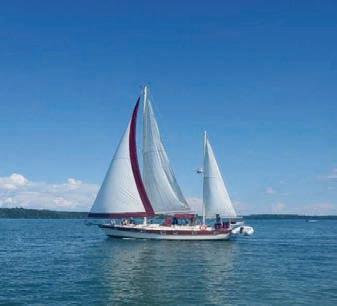
This is your opportunity to sail beautiful Leech Lake on a classic sailing vessel with Sailing Daze sailing charters. Whether it’s a birthday, anniversary, weekend with the girls or guys or family outing, this may be a once in a lifetime experience. You can choose from a two or three hour cruise, a five hour charter to the main lake, or customize your own trip to meet your particular interests. You can help to run the boat, or you can just enjoy the ride, either way it’s a great experience. Leech Lake and Walker have a lot to oXer the summer visitor, including a view from the water on a sailboat that is truly a classic design with a head turning elegance that embodies a sailing tradition and nostalgia.
ThisisyouropportunitytosailbeautifulLeechLakeonaclassicsailing vesselwithSailingDazesailingcharters.Whetherit'sabirthday, anniversary,weekendwiththegirlsorguysorfamilyouting,thismaybea onceinalifetimeexperience.Youcanchoosefromatwoorthreehour cruise,afivehourchartertothemainlake,orcustomizeyourowntripto meetyourparticularinterests.Youcanhelptoruntheboat,oryoucanjust haveaenjoytheride,eitherwayit’sagreatexperience.LeechLakeandWalker lottooerthesummervisitor,includingaviewfromthewaterona sailboatthatistrulyaclassicdesignwithaheadturningelegancethat embodiesasailingtraditionandnostalgia.

ScheduleaCharter
Schedule a Charter Book online: sailingdaze.com e-mail: sailingdaze24.7@gmail.com
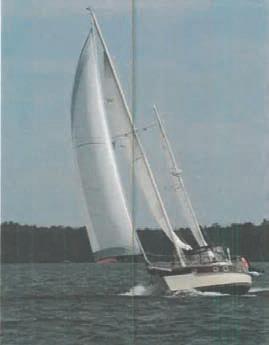
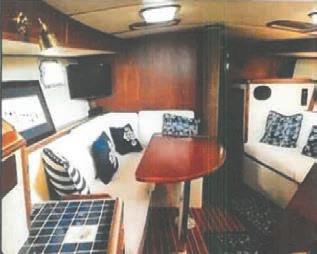
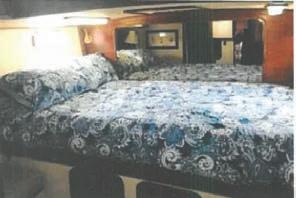
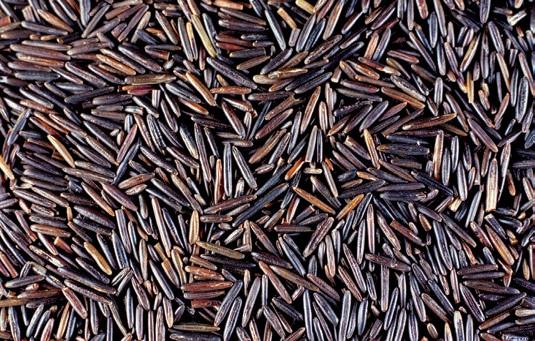
Wild rice, called manoomin in the Ojibwe language, has been a staple food for Minnesota’s Native Americans for centuries.
Long before European settlers arrived in Minnesota, the Anishinaabe gathered wild rice to eat each year. Canoeing through grassy patches, they bent stalks over the canoe and gently tapped ripe seeds off the stems with special sticks. Many still harvest wild rice the traditional way.
It is an aquatic grass, not related to common rice.
Early in the summer,
the plants bloom with tiny maroon and gold flowers. In August and September, their seeds mature into long, dark brown seeds.
Wild rice is commercially produced as a field crop on about 20,000 acres in Minnesota.
For many years, basically all of the wild rice produced in the world came from Minnesota, and most still does.
Wild rice grows naturally in the shallow waters of lakes in central and northern Minnesota
It was adopted as the official state grain in 1977.
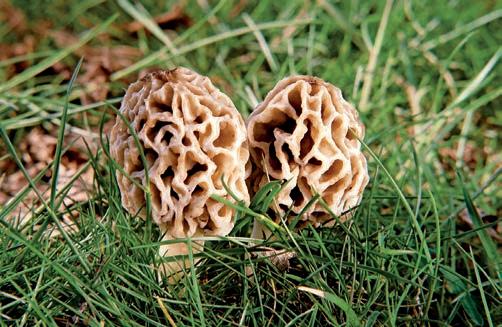
Morchella esculenta, commonly known as the morel, sponge or honeycomb mushroom, became the official state mushroom in 1984.
The morel is considered one of the most highly prized and delicious of all edible mushrooms.They are creamy tan or shades of brown and gray (darkening as they age), with pitted, spongy heads, smooth stems and hollow interiors. It’s usually 2 to 6 inches high.
It grows from early May to early June among leaves or wood ashes in open woods, along roadsides and in partially shaded meadowland. Good places to find morels are near dead elm, cottonwood trees and old apple orchards.
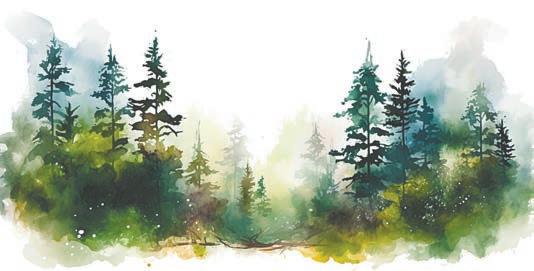
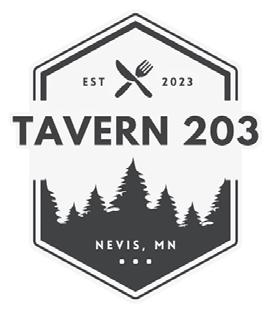




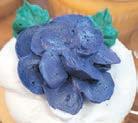
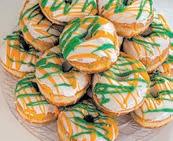








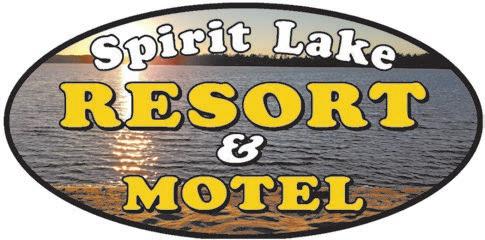
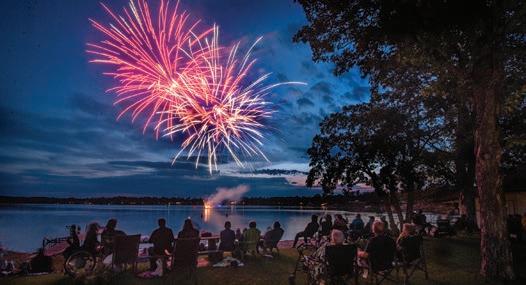

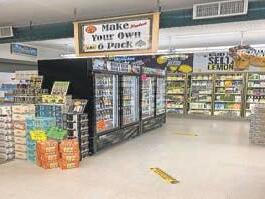
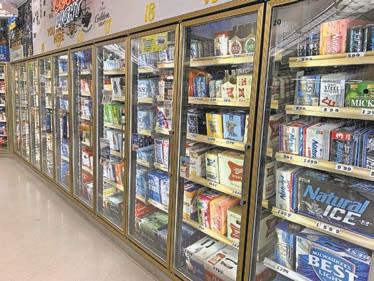


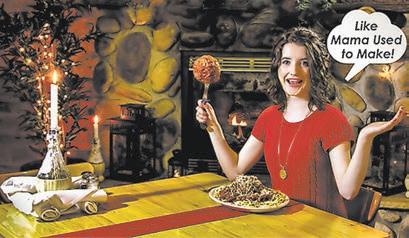
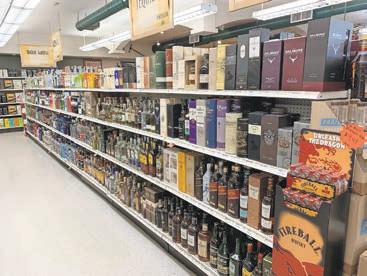
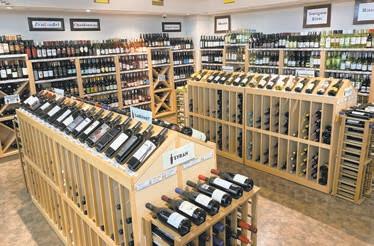


Minnesota has two native blueberries: common lowbush blueberries and velvet-leaf blueberries.
According to the Minnesota Department of Natural Resources, both grow primarily in the northeastern half of the state, but they can be found growing from the furthest northwestern counties all the way to the southeastern corner of the state.
This is a low bush, growing from six inches to two feet high. It often grows in colonies.
Bell-shaped white or pinkish flowers bloom in late May or early June. Berries begin as white, pale blue or green and mature to round, dark blue berries in July and August.
In Minnesota, berry picking is allowed in state parks and in state and national forests, and the rangers might even direct you to a good area.
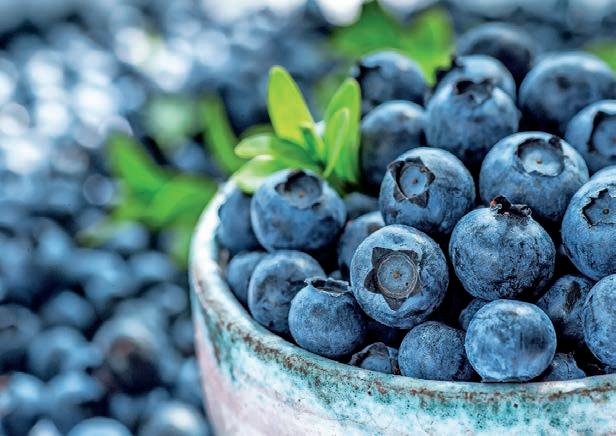
“You don’t need fancy equipment,” writes Teresa Marrone in Minnesota Conservation Volunteer, a DNR publication. “A one-gallon ice cream pail with a handle works well to hold the fruit. You can set it on the ground and drop berries into it as you pick, and unlike a plastic bag, it won’t snag on sticks and thorns as you walk.”
Marrone recommends hiking boots are great for rough or steep areas.
The best habitat, says Marrone, includes open, coniferous woodlands and sandy or rocky edges of coniferous and mixedwoods forests; sun-drenched hilltops and rocky ridges; forest clearings; and edges of footpaths. They thrive in areas that have been scoured by fire, where picking can be phenomenal for the next few years.
Blueberries ripen starting in mid- to late July, continuing through August.
Fruits of both native blueberries grow in clusters from branch tips.
“Underripe berries are green, becoming pinkish before ripening to deep blue with a whitish bloom; ripe berries look just like supermarket blueberries but are smaller – typically ¼ to 1/3 inch across. A key ID feature is the short five-pointed crown that is present on the top.
Ripe berries detach easily from the bush,” she writes.
According to Marrone, velvet-leaf blueberries are tarter than common lowbush blueberries.
“Both can be used like domestic blueberries, but because they’re so small they pack together more closely—so you can use a smaller measure of wild blueberries in muffins or similar recipes. Wild blueberries make outstanding jam and pie.”
According to the University of Minnesota Extension, blueberry plants grow slowly, and they may not seem to get much bigger from year to year. It takes a blueberry bush about 10 years to reach mature size, but this also means they will live a long, long time.
For those who plant them in their yard, “it will be 2 or 3 years before you start getting large harvests, but it is definitely worth the wait. The bushes are very attractive and will be a beautiful addition to your yard while you wait for fruit.”
Minnesota Grown, a newsletter produced by the Minnesota Department of Agricultures, advises the following:
► Don’t wash your berries until you use them. This will help prevent spoilage.
► Remove overly soft fruit, stems and leaves. Be gentle with the fruit.
► Drop berries in cold water and swish for 10 seconds
before draining. Dry on towels.
► Place berries on a lined cookie sheet with space around each. Freeze for 30 min.
► Transfer to a seal-able container and freeze completely. Enjoy for up to a year.
According to Mayo Clinic, scientists have shown that blueberries are loaded with compounds (phytonutrients) that may help prevent chronic diseases, such as heart disease, diabetes and some cancers.
Blueberries may also improve short-term memory and promote healthy aging. Blueberries are a low-calorie source of fiber and vitamin C — 3/4 cup of fresh blueberries has 2.7 grams of fiber and 10.8 milligrams of vitamin C.


As part of a social studies exercise, a class of third graders in Carlton, Minn., proposed that the blueberry muffin become the state muffin. Their bill was signed into law in 1988.
Blueberry Muffin Recipe
2 cups flour
1/2 cup sugar
1 Tbsp. baking powder
1/2 tsp. Salt
1 Tbsp. orange zest (grated peel)
1 cup blueberries (fresh, dried or frozen.
Do not thaw or rehydrate)
1 cup white chocolate chips (optional)
1-1/4 cup buttermilk
1 egg
1/2 tsp. vanilla
Sugar in the raw (large-grain brown sugar)
Preheat oven to 425 degrees. Mix buttermilk, egg and vanilla; set aside. Mix dry ingredients, orange zest, blueberries and white chocolate chips. Make well in center, pour in liquid mixture, and stir lightly just until mixed. Spoon into lined or greased muffin tins. Top with sugar in the raw, and bake for 20 to 22 minutes. Makes a baker’s dozen.
The Honeycrisp apple was adopted as the state fruit in 2006.
Released in 1991, the apple was produced from a 1960 cross of Macoun and Honeygold apples, as part of the University of Minnesota apple breeding program to develop a winter-hardy tree with high-quality fruit.
Today, millions of Honeycrisp apple trees are grown across the U.S. and Canada and as far away as South Africa and New Zealand, according to the Minnesota State Auditor’s Office.
Honeycrisp apples are about three inches in diameter. The U of M describes them as a “large, dappled red fruit with a well-balanced flavor, outstanding crispness and juiciness.” Their skin color is 60 to 90% mottled red over a yellow background.
They are harvested from mid-September to mid-October in east-central Minnesota. The optimum harvest usually occurs the last week of September.
The U of M suggests Honeycrisp apples are best for fresh eating and salads as the flesh is slow to brown. The fruit will easily store 7 or more months, a benefit for small commercial growers.
Since the apple breeding program began at the U of M in 1878, 29 apple varieties have been released.
SnowSweet, Triumph and Zestar! apple trees are other varieties developed by the U of M.
Visit mnhardy.umn.edu for more information on Minnesota varieties and to find licensed nurseries.

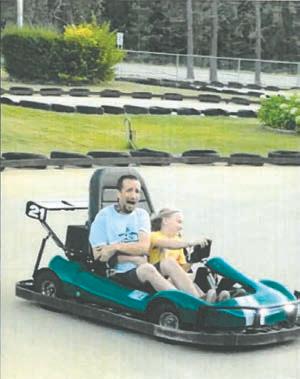
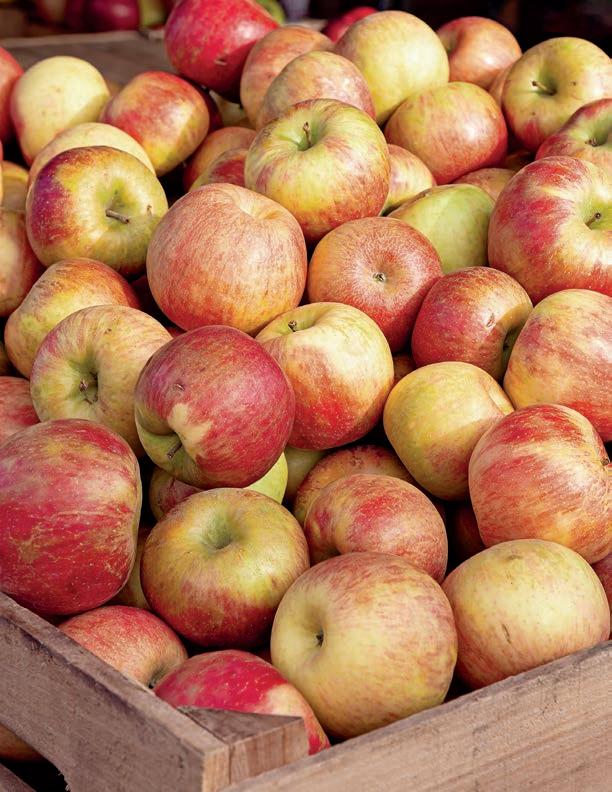




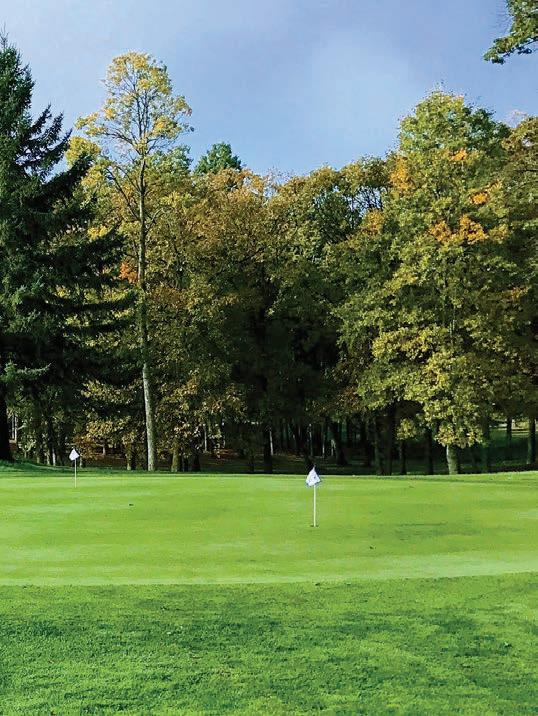






ACIDIC ASADO
BARBECUE
BARK
BASTE
BRINE
BRISKET
BURGERS
CARRYOVER
CHAR
CHARCOAL
CHIMNEY
DRY-AGED FLAME
FLAT
FORK-TENDER
GRILL
HEAT
LEAN
MARINADE RIBS
RUB
SMOKE TEMPERATURE
ANIMAL
BACKPACKING
BOATING
BREEZE
CANOE
CLIMBING
CYCLING
FISHING
HORSEBACK
JOGGING
KAYAK
LAKE
MOUNTAIN
NATURE
PHOTOGRAPHY RECREATION RUNNING
SAILING SKY
SPORTS
SUNSHINE SURF TOURISM TRAILS
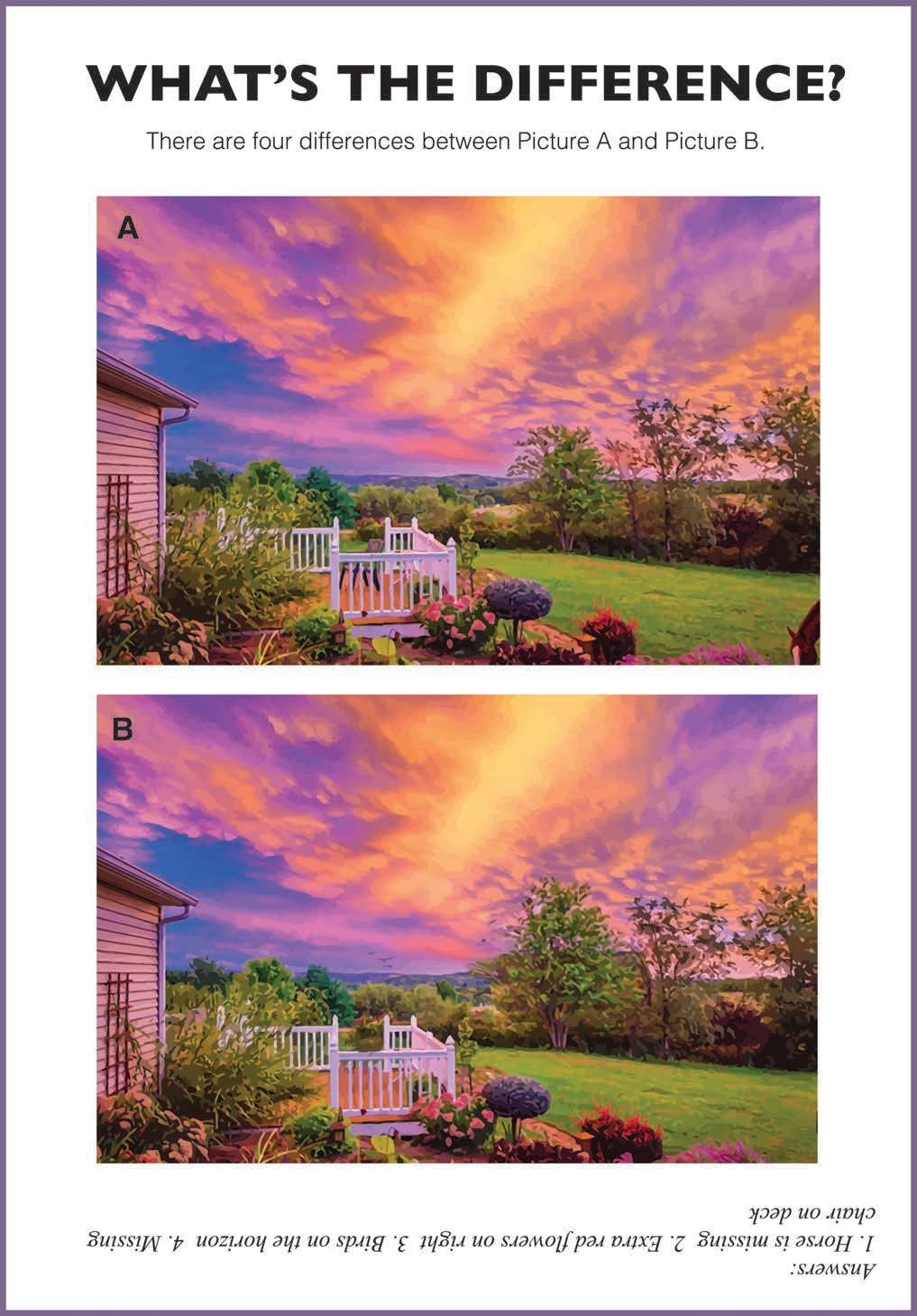
FUN BY THE NUMBERS
Like puzzles? Then you’ll love sudoku. This mind-bending puzzle will have you hooked from the moment you square off, so sharpen your pencil and put your sudoku savvy to the test!
HERE’S HOW IT WORKS:
Sudoku puzzles are formatted as a 9x9 grid, broken down into nine
3x3 boxes. To solve a sudoku, the numbers 1 through 9 must fill each row, column and box. Each number can appear only once in each row, column and box. You can figure out the order in which the numbers will appear by using the numeric clues already provided in the boxes. The more numbers you name, the easier it gets to solve the puzzle!
CLUES ACROSS
1. A minute amount (British)
5. Mystical or magical
11. Shortening
14. More satisfying
15. Other side
18. Philippine island
19. More unnatural
21. Mutual savings bank
23. Famed designer Chanel
24. Makes less wild
28. At some prior time
29. The cops who investigate the cops
30. Immune system response
32. Distress signal
33. Engine additive
35. “No Scrubs” trio
36. Very fast airplane
39. A reward (archaic)
41. Commercial
42. Spots where golfers start
44. Polite form of address (Indian)
46. French river
47. Reduce the light
49. Blood-sucking fly
52. A way to categorize
56. Procrastinates
58. Tall slender tower
60. Where researchers work
62. Office of the Pope
63. Office furnishing
CLUES DOWN
1. Possesses
2. American Board of Orthopedic Surgery
3. Ancient Syrian city
4. Clip
5. In a way, misleads
6. Human gene
7. The Golden State (abbr.)
8. Lizard genus
9. Parisites that invade the skin
10. Took apart
12. Mild yellow Dutch cheese
13. S. California town
16. Suffix Eurasian deer
22. Mr. T character
25. Microsoft
26. Shock therapy
27. Able to be sold
29. A doctrine
31. These three follow A
34. Pulse
36. Quantitative fact
37. Doctor__: children’s book author
38. Hebrew calendar month
40. Designated hitter
43. Norther Poland village
45. A passport is on form
48. Hand (Spanish)
50. Hit with the open hand
51. Actor Idris
53. Shakespeare’s nickname “The__”
54. Northern U.S. lake
55. Marvin and Horsley are two
57. Soak
58. Partner to cheese
59. Expression of disappointment
61. College dorm employee
CLUES ACROSS
1. Island nation
7. Platforms
13. Project plan
14. French fishing port
16. South Dakota
17. Oakland’s baseball team
19. Military policeman
20. Ornamental stone
22. Garland
23. Process that produces ammonia
25. Mousses
26. Music notation “dal__”
28. Fail to win
29. Peyton’s little brother
30. Not near
31. Some cars still need it
33. Lizard genus
34. An idiot (Brit.)
26. Postponed
38. African country
40. Gazes unpleasantly
41. In a way, traveled
43. Ukraine’s capital
44. Appropriate
45. Dash
47. Twitch
48. Swiss river
51. Data file with computer animations
53. City in S. Korea
55. Particular region
56. They have eyes and noses
58. Tear
59. Large Madagascan lemur
60. Not out
61. Ornamental saddle covering
64. A driver’s license is one
65. Latin term for charity
67. Rechristens
69. Objects from an earlier time
70. Hindu male religious teachers
1. Used as a weapon
2. Yukon Territory
3. Makes a map of
4. An established ceremony prescribed by a religion
5. Unnilhexium
6. Merchant
7. Playing the field
8. Folk singer DiFranco
9. Something to scratch
10. Mexican Agave
11. Equal to one quintillion bytes
12. Session
13. North american people
15. Ranches
18. Electroencephalograph
21. A type of compound
24. Avenue
26. High schoolers’ test
27. A type of meal
30. Gradually disappeared
32. Ancient Frankish law code
35. Popular pickup truck
37. Buzzing insect
38. Deal illegally
39. Lying in the same plane
42. Obstruct
43. Related
46. Challange aggressively
47. Nocturnal hoofed animals
49. Bird’s nests
50. Forays
52. __B. de Mille, filmmaker
54. Title of respect
55. One-time name of Vietnam
57. Self-immolation by fire ritual
59. Private school in New York
62. Political action committee
63. A way to fashion
66. Email reply
68. “The Great Lake State”
GRILL & BBQ WORD SEARCH
WHAT’S THE DIFFERENCE?
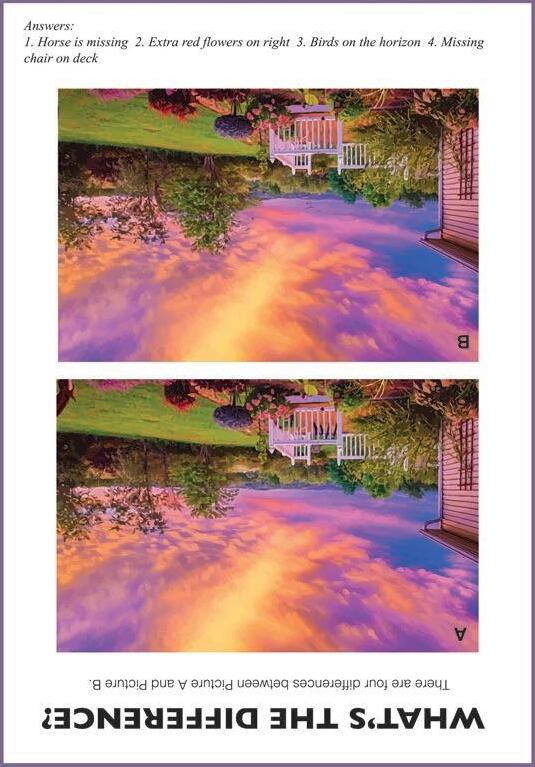
The fishing opener refers to the start of fishing for walleye, northern pike, bass and trout in lakes on inland waters of Minnesota.
About 500,000 people were expected to fish on Saturday, May 11.
Seasons for some other species, including sunfish, crappie and channel catfish, are open all year.
According to the Minnesota Department of Natural Resources:
► Although not every kind of fish lives everywhere, 162 species of fish can be found in Minnesota waters.
► Minnesota has 11,842 lakes that are 10 or more
acres in size, 4,500 of which are considered fishing lakes. There are more than 16,000 miles of fishable rivers and streams, including 3,800 miles of trout streams.
► Fishing supports 28,000 Minnesota jobs, according to the American Sportfishing Association.
The purchase price of every fishing license goes into the Game and Fish Fund, a dedicated account that can only be used for fish, wildlife, law enforcement and certain other outdoor-related activities.
More information on fishing in Minnesota is available at mndnr.gov/fishing.


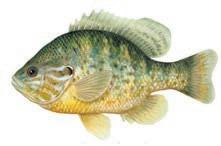
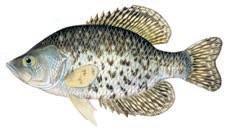
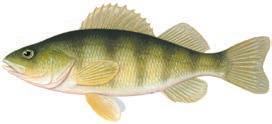
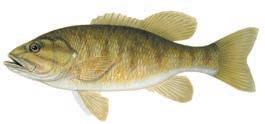

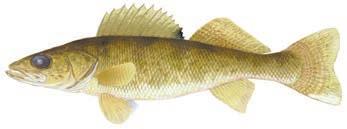
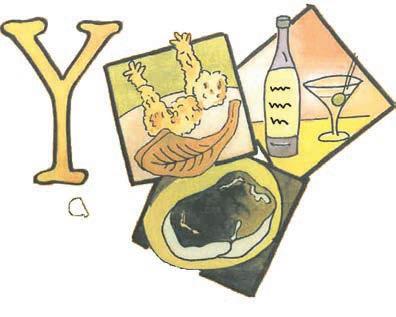


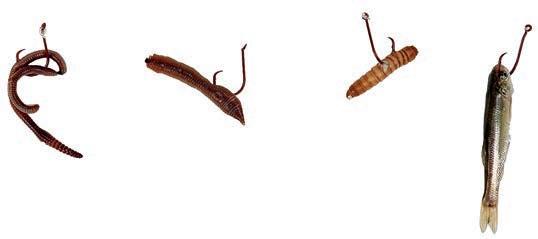
Whether this is your first or thousandth time visiting northern Minnesota, you should dip a fishing line at least once this summer.
It’s possible to catch fish from shore, a fishing pier, dock or a boat.
The fishing opener refers to the start of fishing for walleye, northern pike, bass and trout in lakes on inland waters of Minnesota.
About 500,000 people were expected to fish on Saturday, May 11, 2024.
Seasons for some other species, including sunfish, crappie and channel catfish, are open all year.
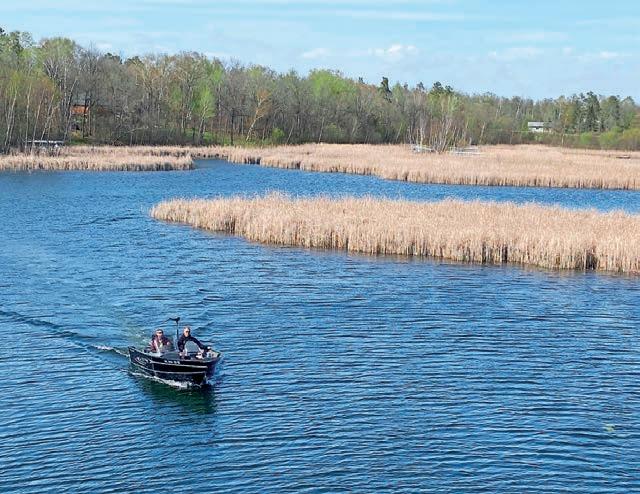
More information on fishing in Minnesota is available at mndnr.gov/fishing.
Baiting the hook
Wax worms, angleworms, and nightcrawlers are excellent bait choices for most types of shore-fishing, and they’re easy to obtain from bait shops. Minnows can be used, too, but they’re harder to keep alive.
If you’re using angleworms or nightcrawlers, pinch, tear, or cut them into two or three smaller pieces when fishing for sunfish. Sunfish have small mouths.
Place bait securely on the hook. Thread worms or a worm piece by hooking through it two or three times.
To fish in Minnesota, anglers 16 years or older are required to buy a Minnesota fishing license.
The DNR offers a variety of fishing license types to fit the needs of anglers. Some of the most popular licenses are an annual fishing license for $25, a married combination fishing license for $40, a sports license that allows angling and small game hunting for $41, and an annual license for Minnesota non-residents for $51.
Boaters may not do the following:
► Transport watercraft without removing the drain plug.
► Arrive at lake access with drain plug in place.
The walleye became the official state fish in 1965.
The walleye is the most sought-after fish in Minnesota. Its thick, white fillets, handsome shape and coloring, and elusive nature make it the ultimate prize among anglers.
This popular game fish is found throughout Minnesota in lakes and rivers.
Walleyes are most at home in the large, clear, cool lakes of Minnesota’s northern forests.
Their eyes are sensitive to light, so they go to deep, dark waters during the day and move to shallow areas at night. It gets its name from its glassy eyes, which make it look “walleyed” – an oldfashioned word for blind.
The walleye is the largest member of the perch family in the U.S. The state record for walleye weighed 17 pounds, 8 ounces.
► Transport aquatic plants, zebra mussels, or other prohibited species on any roadway.
► Launch a watercraft with prohibited species attached.
► Transport water from Minnesota lakes or rivers.
► Release bait into the water.
Boaters and public water users should use AIS best management practices and should expect to see watercraft inspectors at many public accesses across Hubbard County.
Free decontamination station
Organisms that are too small to see, such as young zebra mussels, can be killed by flushing with hot water ranging from 100 to 140 degrees.
As a courtesy to the public, the county operates a free decontamination station, located at 812 Henrietta Ave. S., Park Rapids. Call 218-616-1631 ahead of time to make an appointment.
The station is staffed by watercraft inspectors who have special training and certification from the DNR. A typical decontamination is pretty quick, usually about 15 minutes.
If you have questions about the Hubbard County AIS Program or have suspicion of a new AIS infestation, call the Hubbard County Environmental Services Department at 732-3890 or stop in at 301 Court Ave., Park Rapids.
In Minnesota, fishing supports $4.4 billion in economic output through everything from anglingrelated tourism to the sales of boats and fishing gear, and fishing supports 28,000 jobs, according to the American Sportfishing Association.


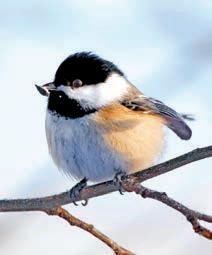
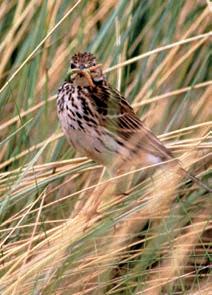

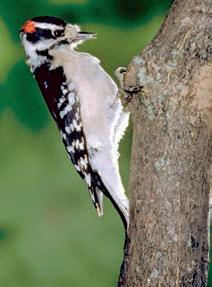
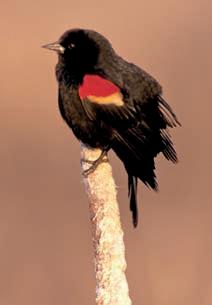
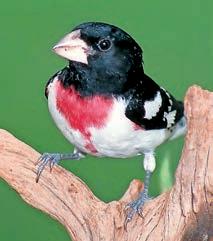
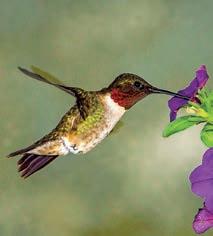

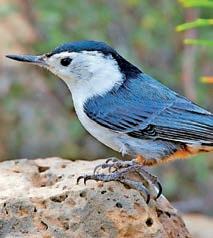



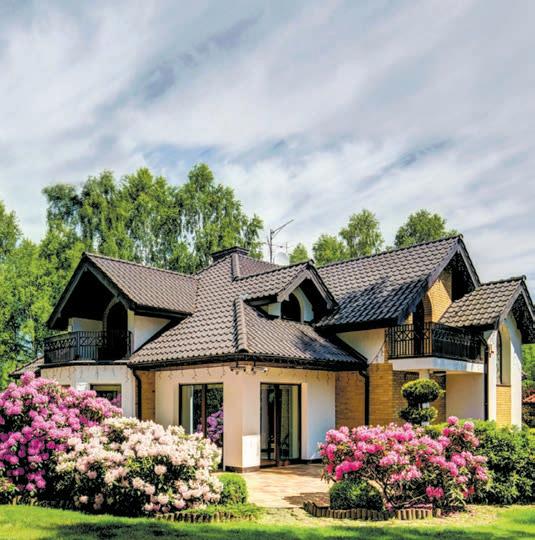
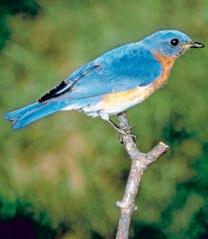


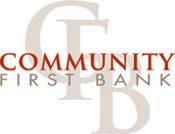

On a lazy summer day relaxing at the cabin, sample a recipe for one of these refreshingly cool treats from allrecipes.com.
TROPSICALS
1-1/2 cups low-fat vanilla yogurt
1 cup sliced mango
8-oz. can pineapple chunks, undrained
1 small banana
1 orange, juiced
Blend yogurt, mango, pineapple chunks with juice, banana, and orange juice in a blender until smooth. Pour into ice pop molds. Freeze until set, 4 to 6 hours.
ICE CREAM SANDWICH CAKE
24 vanilla ice cream sandwiches, unwrapped
2 (8-oz.) containers whipped topping, thawed
12-oz. jar hot fudge ice cream topping, warmed
12-oz. jar caramel ice cream topping
1/4 cup chopped pecans, or to taste Arrange a layer of ice cream sandwiches in the bottom of a 9-by-13-inch dish. Top with a layer of whipped topping, hot fudge topping, and caramel topping. Repeat layering with remaining ice
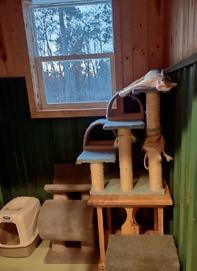

cream sandwiches, whipped topping, hot fudge topping, and caramel topping, ending with a top layer of whipped topping. Sprinkle with pecans.
Cover the dish with aluminum foil and freeze until set, about 30 minutes
S’MORES POPSICLES
2 cups cold milk
1 (3.9-oz.) package instant chocolate pudding mix
2 whole graham crackers, crushed 1-1/2 cups vanilla ice cream, softened Beat milk and pudding mix together in a bowl using an electric mixer until thickened, about 2 minutes. Measure 1 1/2 cup pudding and set remaining pudding aside for another use. Sprinkle graham cracker crumbs into the bottom of each ice pop mold. Add about 1/4 cup ice cream. Sprinkle another layer of graham cracker crumbs and top with about 1/4 cup pudding. Add a final layer of graham cracker crumbs. Freeze until completely frozen, about 3 hours.
CLASSIC PUDDING POPS
2 cups milk
1/2 cup evaporated milk
1 (3.5-oz.) package instant chocolate pudding mix
1/4 cup white sugar
Beat milk, evaporated milk, instant pudding, and sugar in a bowl until thoroughly combined. Pour into ice pop molds and freeze until firm, about 3 hours.
BLUEBERRY SMOOTHIE
1 cup fresh or frozen blueberries
8 oz. container plain yogurt
3/4 cup 2% milk
2 Tbsp. white sugar
1/2 tsp. vanilla extract
1/8 tsp. ground nutmeg
Blend blueberries, yogurt, milk, sugar, vanilla and nutmeg in a blender until frothy, scraping down the sides of the blender if needed. Makes two servings.
NO-CHURN VANILLA ICE CREAM
1-1/2 cups whipping cream
14-oz. can sweetened condensed milk
1 Tbsp. vanilla extract
Beat cream in a chilled glass or metal bowl with an electric mixer until stiff peaks form.
Mix condensed milk and vanilla extract together in a bowl. Fold in whipped cream with a spatula until just combined. Pour into a freezer-safe container and freeze until completely frozen, 5 to 8 hours.
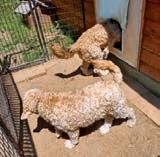

There are 14 species of frogs and toads in Minnesota. Here is a sampling.
BULLFROG
Size: 3.5 to 8 inches
This is the largest North American frog.
Voice: A resonant series of deep bass notes sounding like “rrr-uum” or “jugo-rum.”
Identification: Green skin coloration with yellow throat in males and white in females. No dorsolateral fold is present.
Summer habitat: This highly aquatic frog prefers large bodies of water, such as lakes, ponds, sluggish streams and backwaters of rivers.
GREEN FROG
Size: 3.5 to 8 inches
The green frog is the second largest frog in Minnesota, second only to the bullfrog.
Voice: A throaty gunk or boink, like the pluck of a loose banjo string. Often calls during day and night. The male has paired vocal pouches.
Identification: This fist-sized frog has two ridges down its back. The young may have black spots. The males have large tympanums (the round structures directly behind the eye).
Summer habitat: This highly aquatic species is often associated with streams and ditches, although it also inhabits shallow water of lakes and ponds.
SPRING PEEPER
Size: 3/4 to 1.5 inches
Voice: Short, loud, high-pitched peep. Many individuals singing together sound like sleigh bells.
Identification: Tan with a dark X on its back.
Summer habitat: Inhabits forested areas, especially areas with brushy undergrowth. May be heard calling in the fall.
WOOD FROG
Size: 2 to 2-3/4 inches
Voice: Often the first species heard calling in the spring. Their short chuckle is a harsh “racket, racket, racket.” A chorus sounds like the feeding call of the mallard.
Identification: This brown, palmsized frog has a dark patch over its eyes and two big ridges run down its back.
Summer habitat: Wood frogs live in forested areas such as those found in northern Minnesota. They can be found under logs and rocks far from water or in ponds.

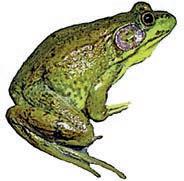
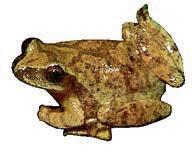

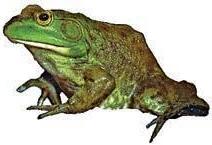
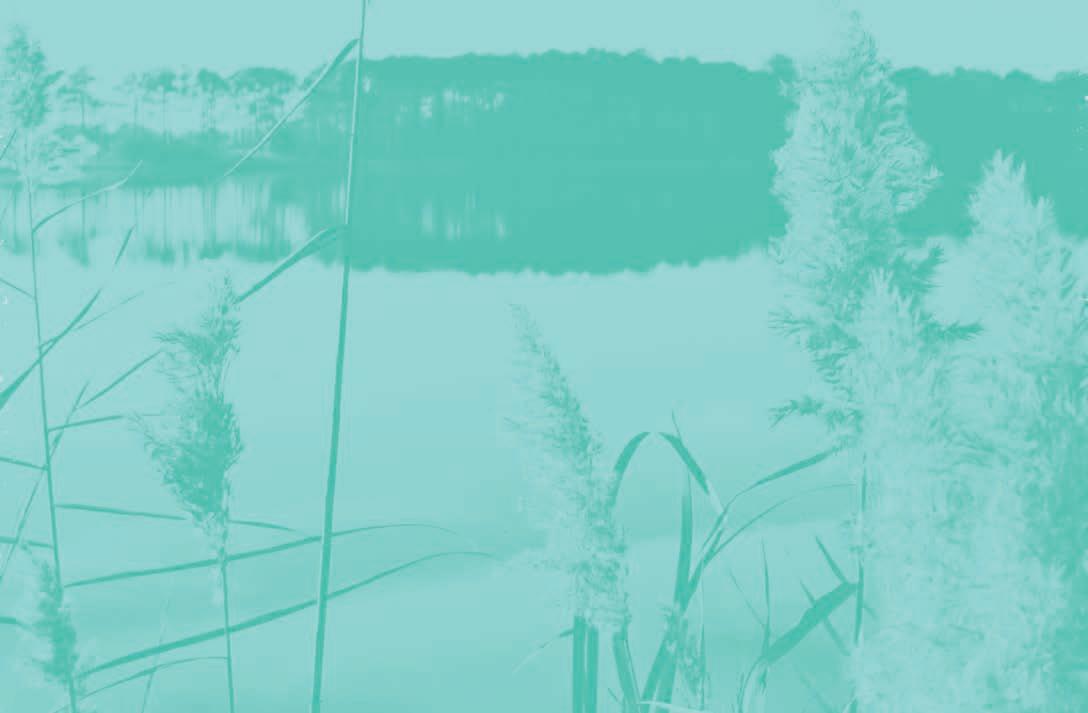
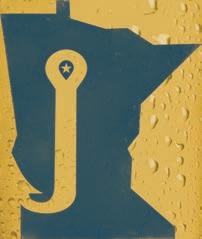
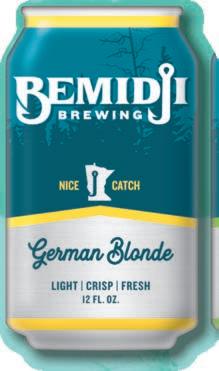
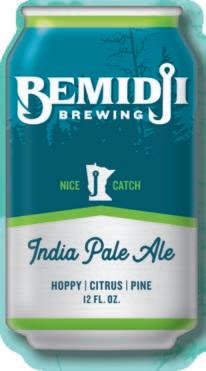

Minnesota’s oldest state park – Itasca State Park – was established on April 20, 1891 to preserve the old growth pine trees that were in danger of being logged.
More than half a million people visit Itasca State Park every year to see the giant pines and wade across the headwaters of the Mississippi River State Water Trail.
Park Rapids is the undisputed Gateway to Itasca State Park and the south entrance is a 22-mile drive from Park Rapids north on Hwy. 71. The east entrance is only a couple miles farther north of the south entrance, and then another mile or so west on Hwy. 200 – you’ll find it easily at the junction of Hwy. 71 and Hwy. 200.
Itasca State Park encompasses Lake Itasca, the official source of the Mississippi River, and a scenic area of northern Minnesota that has remained relatively unchanged from its natural state.
Today, the park totals more than 32,000 acres and includes more than 100 lakes.
Stand under towering pines at Preacher’s Grove. Visit the Itasca Indian Cemetery or Wegmann’s Cabin, landmarks of centuries gone by. Camp under the stars, or stay the night at the historic Douglas Lodge or cabins. Explore Wilderness Drive past the 2,000-acre Wilderness Sanctuary, one of Minnesota’s seven National Natural Landmarks.
The headwaters of the mighty Mississippi It’s hard to imagine America’s greatest river as a burble, but if you
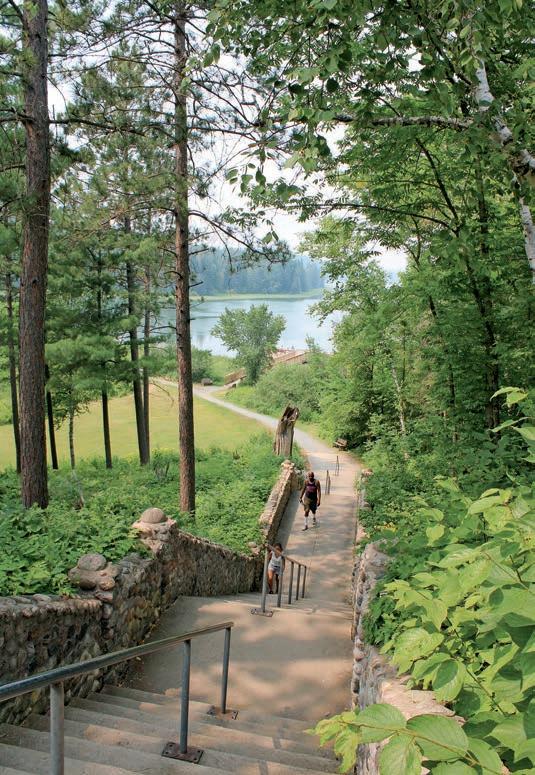
venture to the Mississippi headwaters in Itasca State Park, you will be able to wade across Huck Finn’s favorite river as it starts its winding journey 2,552 miles to the Gulf of Mexico.
The Mary Gibbs Mississippi Headwaters Center offers outdoor displays, a restaurant and gift shop.
There are plenty of other activities to do at the park, including taking an excursion boat
on Lake Itasca, exploring along Wilderness Drive, biking or hiking along more than 30 miles of designated trails, fishing in one of the many lakes, observing the wild flowers in season as well as birding.
For more information about the park events and schedules, call Itasca State Park headquarters at 218-699-7251, email itasca.statepark@state.mn.us or go to www.dnr.state.mn.us/ state_parks/itasca/index.html.

680 of the Mississippi River’s 2,522 total miles flows through Minnesota – and it all begins in Hubbard County at Itasca State Park.
The name “Minnesota” comes from Dakota Indian words meaning “skytinted waters” or “sky-blue waters.” Minnesota has 90,000 miles of shorelines due to its abundance of lakes – that’s more than California, Florida and Hawaii combined.
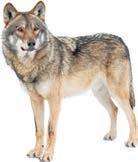


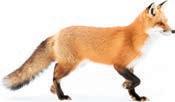


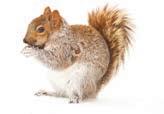

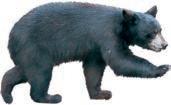


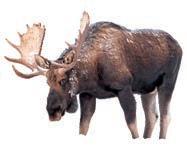





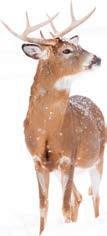
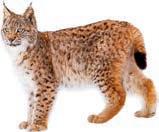


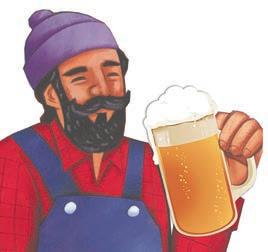



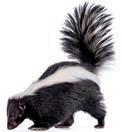



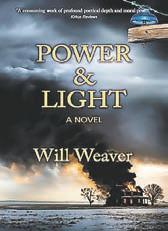

Minnesota’s forests, prairies, woods and wetlands on 11 million acres of public land make it home to diverse wildlife. Here are some fun facts about a few of those critters.
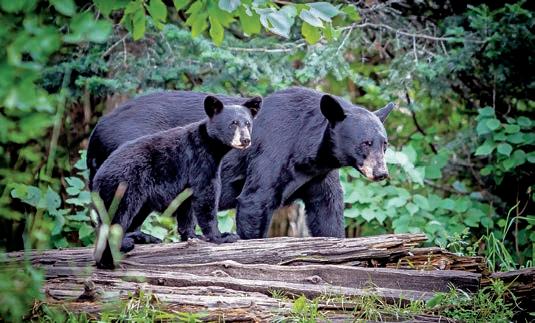
The black bear is the only species of bear in the state, according to the Minnesota Department of Natural Resources (DNR).
Black bears usually try to avoid people, but sometimes come in conflict with humans when they eat crops, destroy apiaries, or break into garbage cans and bird feeders.
The state has a healthy population of black bears, but while Minnesotans spend considerable time recreating in the wooded areas, most people have never seen a bear close up, the DNR says.
This is because most bears flee quietly when they hear someone coming. Even among the thousands of encounters that have occurred, by hikers, campers, birders, berry-pickers, hunters and others, the experience is usually non-eventful. Attacks are very rare.
There have been no fatal bear attacks in Minnesota.
The DNR offers this advice, if you should encounter one:
► Do not panic. Stop what you are doing and evaluate the situation.
► Make your presence known by speaking in a calm tone. Don’t startle the bear.
► Alter your route or back away slowly, preferably in the direction you came.
► Walk, do not run, and keep your eye on the bear so you can see how it reacts. In most cases, the bear will flee.
► If the bear walks toward you, act boldly, yelling and throwing something at it. Do not climb a tree.
► If you have bear spray, remove the safety, and be ready to use it if the bear approaches you.
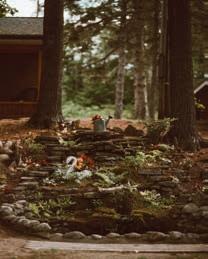

Trumpeter swans are a fairly common sight, thanks to a project to bring the bird back to Minnesota.
Trumpeter swans were reintroduced to the Detroit Lakes area in Becker County in the 1980s.
“They are a native species that we had lost due to habitat loss and over-hunting for their meat, skin and feathers back when the state was first settled and there were no regulations,” said Minnesota Department of Natural Resources (DNR) area wildlife supervisor Erik Thorson.
“By the 1880s, they had disappeared from Minnesota, so trumpeter swan eggs were brought to Minnesota from Alaska and those offspring released to reestablish the population.
Carol Henderson was the one who started the statewide program. Back then birds had neck collars on with letters and numbers that people could read with binoculars. They also had metal leg bands similar to how we band geese to keep track of them. They are a popular bird and loved by a lot of folks.”
While no trumpeter swans were released in Hubbard County, they made their way here from Becker County.
“Trumpeter swans are very territorial. They moved into surrounding areas as their population grew,” Thorson said.
Trumpeter swans may live up to 25 years.
Thorson said one of the best places to spot the birds is in larger wetlands and shallow lakes with enough space to take off and land. Upper Bottle Lake and the Crow Wing chains are two popular spots for viewing.
Thorson said in addition to their beauty, swans also have an ecological role.
“They forage in water that Canada geese and mallards can’t,” he said. “They’re messy eaters and bring up bits of plants from deeper water that they leave behind for other waterfowl to forage on.”
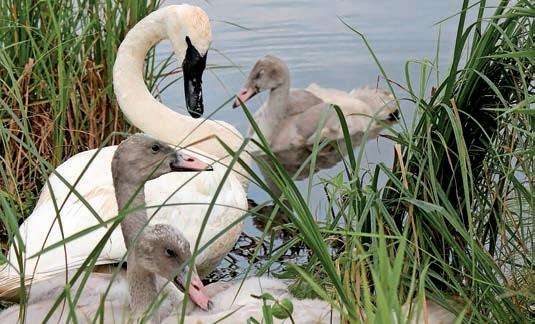


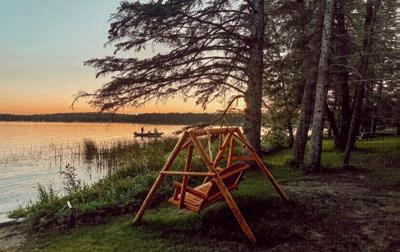
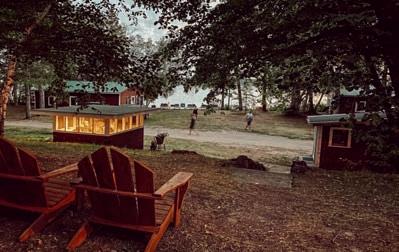


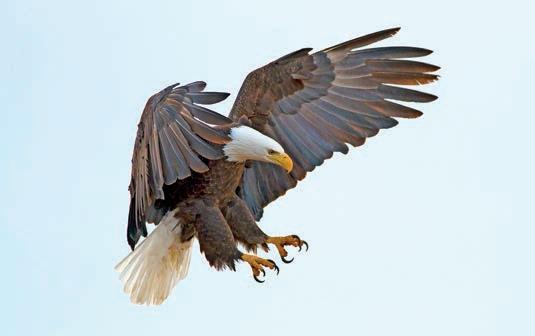
There are two eagle species living in Minnesota.
Bald eagles are the easiest to spot, while golden eagles are seen less frequently.
Thorson said that eagles are one of the earliest nesters in the state.
“We have a healthy population of eagles, so it’s pretty common to see them in this area,” he said.
Thorson said, while driving through the Northwoods, motorists should be on the lookout for eagles feeding on roadkill along ditches.
“They’re quite active in the spring and early summer. Be careful, because a lot of times, they have a full belly and have a hard time getting off the ground. They’re not as agile as smaller birds, so watch out for them along the roads and be aware an eagle might be flying off a carcass,” he said. “A fair amount of eagles get hit along roads while feeding on deer carcasses. If there is a deer carcass in a ditch near your property, drag it farther away from the road if possible.”

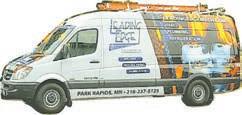
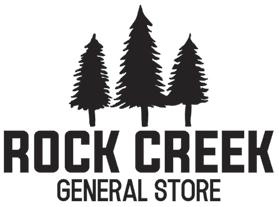
According to the DNR, the restoration of the wild turkey over the past 25 years is one of Minnesota’s greatest conservation success stories.
Once rare, today wild turkeys are becoming a common sight. The birds, which usually travel in flocks, are often seen in wooded areas next to farm fields and pastures.
The state has spring and fall hunting seasons, which have become very popular. Hunting is regulated to allow the wild turkey population to continue growing.
Wild turkeys form flocks of six to 40 birds that roost in trees each evening. In 1782, the turkey lost by a single vote to the bald eagle to become the national bird.
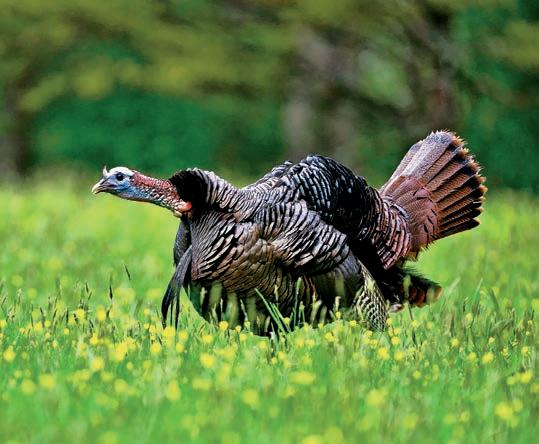
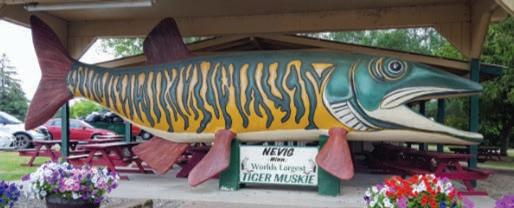

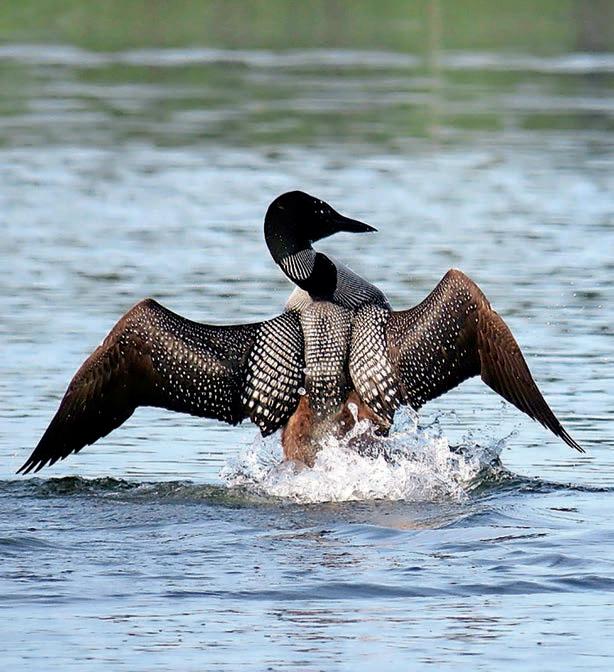
Few birds use sound to communicate in as many ways as loons do. Scientists have categorized common loon calls into four main types, each conveying a unique message.
Hoot: A loon gives a hoot – a soft, short call – to let other loons know where it is or to ask another loon where it is. A parent might hoot to its chick, or one of a pair to another.
Tremolo: The wavering tremolo call – sometimes likened to maniacal laughter – means a loon is excited or alarmed. Loons also use the tremolo when they fly over a lake to announce their presence to any loons there.
Yodel: Only male loons make this loud sound, which starts with three notes and ends with a couple of swinging phrases. They use it to defend their territory. Each male has a “signature” yodel. Some people have learned to recognize a specific loon by his yodel.
Wail: The high, haunting wail helps loons to figure out where they are relative to each other. They call back and forth, using the location of the sound to move closer together.

Nothing symbolizes the beauty of northern Minnesota more than the haunting call of the loon, our state bird.
Do your part to protect loons. Minnesota’s loon population is threatened by loss of breeding habitat, water contamination and direct human disturbance to shoreline nests.
When boating in open water, watch for loons and keep your distance – at least 150 feet. Give more distance if the loon calls or shows other signs of distress, like when it “dances” on the water surface.
It’s particularly important to stay away from nesting loons. Never circle loons while jet skiing. This is harassment and subject to a fine from DNR.
Choose lead-free fishing tackle.
Don’t throw old fishing gear into the water or shore.
Properly dispose of unwanted lead tackle.
► Loons’ bones are thicker and heavier than the bones of many other birds. The extra weight helps loons stay underwater when they dive. It also makes it harder for them to fly.
► Loons sometimes dive 250 feet deep.
► They can swim 400 yards and stay underwater for up to five minutes to escape danger.
► Because their bodies are heavy relative to their wing size, loons need a 100- to 600-foot runway in order to take off from a lake.
► Loons can fly more than 75 miles per hour.
► The red in the loon’s eye helps it to see underwater.
► Scientists think loons can live for 30 years or more.
Park Rapids calls itself the “Loon Capital of the U.S.A.”
The Legislature adopted the common loon as Minnesota’s state bird in 1961.
A loon’s legs are near the rear of its body, enabling it to dive under water with great speed and agility.
Averaging about 9 pounds, the distinctive bird, with its black and white plumage, can attain speeds up to 60 miles per hour and dive as deep as 250 feet.
The loon earned its name from the old English word “lumme,” meaning clumsy one. Due to the bird’s inability to maneuver well on land, it’s a fitting description.

Lakes country offers many opportunities to bike, run, walk, hike or inline skate with beautiful scenery.
An excellent place for running, biking, inline skating and walking. There are mile markers posted along the trail, which runs from Heartland Park in Park Rapids to Dorset (6.3 miles), Nevis (5.3 miles), Akeley (6.3 miles), Walker (9.4 miles), Wilkinson (12.5 miles) and ends two miles before Cass Lake (7.2 miles).
The hilly snowmobile trail alongside the Heartland Trail, with beautiful scenery and wildlife, is a great opportunity for horseback riding, mountain biking, running and walking.
The Paul Bunyan Trail is 115 miles long, extending from Crow Wing State Park to Lake Bemidji State Park. It’s the longest of Minnesota’s state trails and the longest continuously paved rail-trail in the country.
The trail is open year-round to non-motorized use and snowmobile in the winter. In Walker, the route intersects with the Heartland Trail.
The North Country National Scenic Trail is one of 11 National Scenic Trails in the U.S. and the only one in Minnesota.
The North Country Trail runs 4,600 miles from New York to North Dakota. Being open to foot traffic only, Minnesota’s footpaths hold unimpeded travel for hikers, berry pickers, hunters, geocachers, cross country skiers and snowshoers.
Short day hikes or overnight hikes are possible. Maps, events and suggested hikes are available at www. northcountrytrail.org
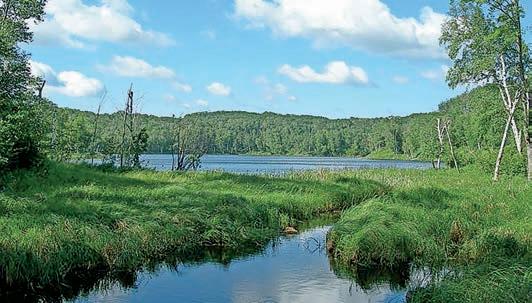
Contributed/Matthew Davis

Anyone walking this trail is in for a treat as it meanders through forested hills and valleys interspersed with rivers, lakes, and numerous wetlands.
Later in the summer, you can be rewarded by finding wild strawberries, raspberries, blackberries and blueberries along the trail.
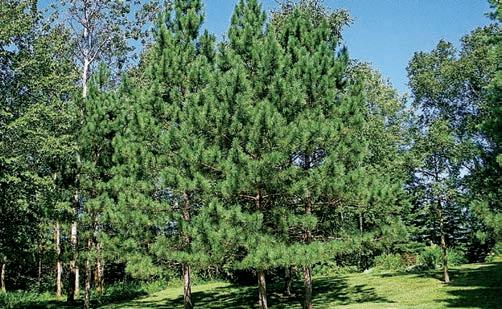
The Ojibwe refer to Norway, or red pines, as “grandfathers.”
When people think of the northwoods, they often think of the towering red pine.
In 1953, it became the official state tree of Minnesota in recognition of its important role in the state’s history, economy and environment. More than a century ago, loggers cut red pines and sent the logs downriver to build houses and businesses.
It’s called a red pine because of the pale red color of its heartwood and the reddish tint of its bark.
Their needles are four to six inches long and grow in pairs. Red pines typically reach heights of 60 to nearly 150 feet. They can live to be about 400 years old.
Itasca State Park has one of the state’s largest stands of Norway pines – about 5,000 acres. The park once was home to the state’s tallest red pine, towering more than 120 feet tall and more than 300 years old. It was blown down during a severe windstorm in 2007.


5pm
Some of Minnesota’s 23 species of bumble bees are easily identified on the wing.
The rusty patched bumblebee became Minnesota’s state bee in 2019.
Its designation as state bee is intended to raise awareness about the role of pollinators in Minnesota’s ecosystems and the importance of conservation of their habitats.
Since 2017, rusty patched bumblebee has been listed as an endangered species under the U.S. Endangered Species Act, and since 2014, as “critically endangered” by the International Union for Conservation of Nature.
This fuzzy bumblebee can be identified by a rust-colored patch on its abdomen.
It was once widespread in the eastern U.S., but now is found in just a fraction of its former range. It was previously distributed across eastern North America – from Quebec to Georgia and west to North Dakota.
According to the Minnesota Department of Natural Resources (DNR), the rusty patched bumblebee was once one of the most common bumble bees encountered in Minnesota. Researchers estimate their geographic distribution has been reduced by 70-87%, and there is evidence of declines in abundance of 92-95%.
The DNR says, despite having essentially disappeared from a large part of its historic range, there have been consistent contemporary detections in Minnesota. The bee has been located in Hubbard, Becker, Cass and Clearwater and Crow Wing counties.
Places like Minnesota may provide a sort of last stronghold because of the state’s mix of habitat types.
Several efforts are underway to monitor and conserve the
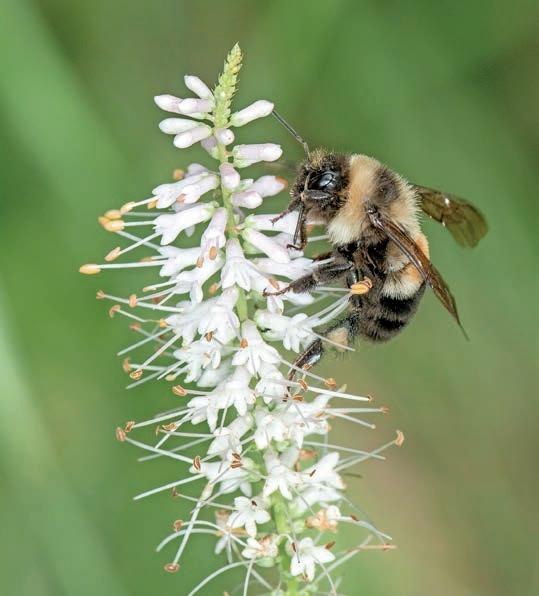
rusty patched bumble bee. The DNR has worked to build foraging habitat by planting diverse, native plantings and supporting healthy prairies and forests through active management and protection of natural areas. The Board of Water and Soil Resources launched a campaign called Lawns to Legumes to help homeowners and communities create pollinator gardens targeted at the bee. The University of Minnesota has partnered with the Xerces Society for Invertebrate Conservation and the DNR to support community science monitoring of bumble bees through the Minnesota Bumble Bee Atlas.
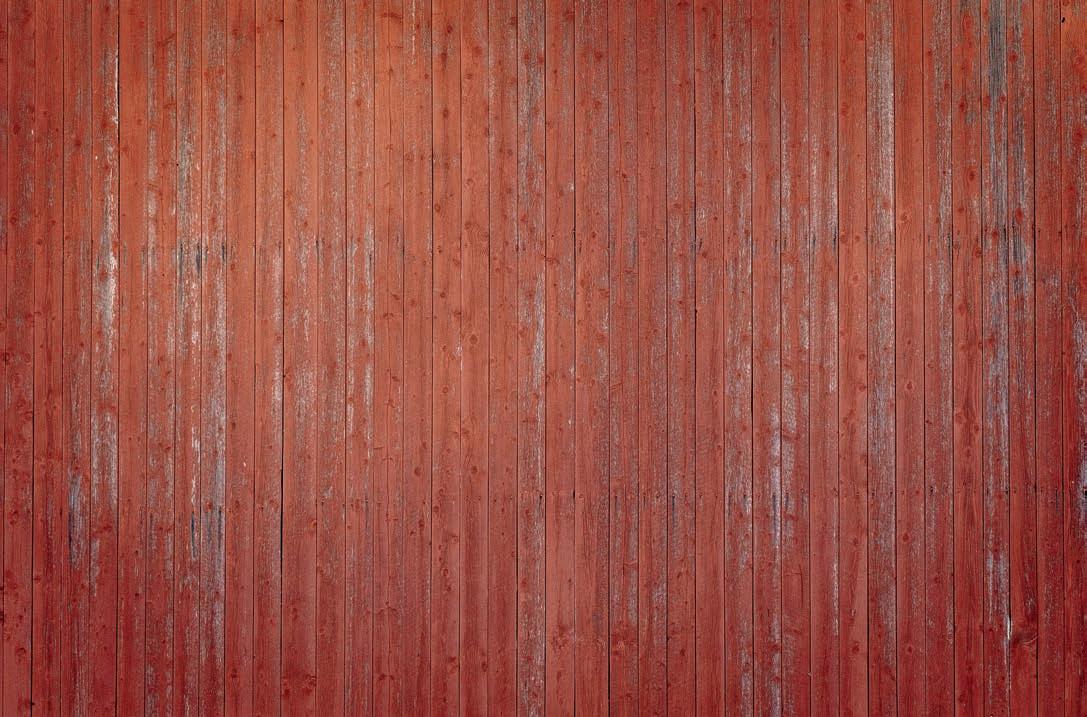



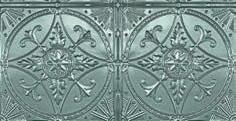





All of us are on a unique journey; we each face different challenges. But life is better together, sharing in both the struggles and celebrations. You’re welcome here, no matter where you are in your spiritual journey.
Ou r visionistotransfor m ou r home s,C ommunity,andworl dbypurs uin g Go d, buildin g community,andun l ea shing com pas sio n on e neighborhoo datat ime .
Ou r visionistotransfor m ou r home s,C ommunity,andworl dbypurs uin g Go d, buildin g community,andun l ea shing com pas sio n on e neighborhoo datat ime . EA STS ID
Ou r visionistotransfor m ou r home s,C ommunity,andworl dbypurs uin g Go d, buildin g community,andun l ea shing com pas sio n on e neighborhoo datat ime .
Families matter and we’ll do everything we can to support you and encourage your kids.
We believe in building into the next generation, as they have the power to change the future.


